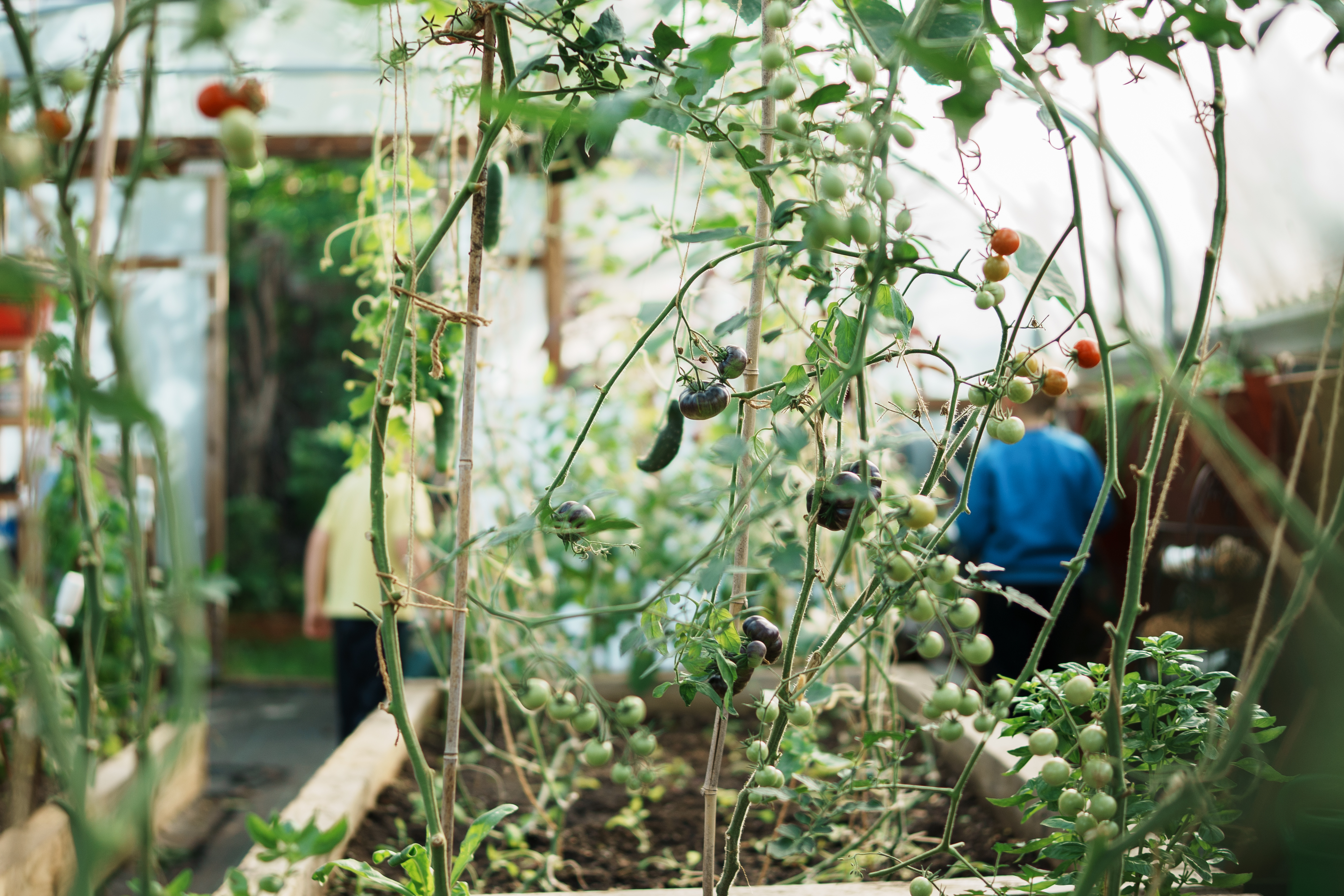Barnes Common frequently receives enquires from people who want to make their gardens more sustainable, and we usually respond to these queries here. However, this month we’re addressing something a little different – rather than thinking about something we can do for our gardens, we’re thinking about something our gardens can do for us. If you have a question you would like us to feature in the future – whether related to food growing or sustainable gardening in general – please contact Nicky. If you have tried these ideas at home, let us know how it goes!
Many of us are familiar with the idea that gardening is beneficial for our wellbeing. But sometimes this concept can feel a little vague. After all, social media tells us that all sorts of things are good for our wellbeing – from ice baths to juice cleanses – and there is often limited evidence to back these claims up. In this post we address the question, “how is gardening good for wellbeing, and what is the evidence to support this?”. In turn, we’ll be able to think about how, exactly, we can turn weeding our back gardens into something that has tangible benefits for our mental and physical health.
Wellbeing in itself can feel like a slightly nebulous concept, and it can mean different things to different people. When thinking about the benefits that gardening can deliver, it’s helpful to break the idea of ‘wellbeing’ down into four component parts; physical, emotional, cognitive and social.
Gardening naturally benefits our physical health – moving, lifting, stretching and bending all support our strength and fitness. Research suggests that 30 minutes of gardening is comparable to 30 minutes of badminton or volleyball. Movements such as pushing, squeezing and twisting help develop fine motor skills, something we all need, but which are particularly beneficial for children and people with neurological or developmental conditions. In addition to physical movement, we’re increasingly coming to understand that contact with soil, leaves and microorganisms is vital for our own internal biodiversity. A fascinating study looked at the impact regularly exposing children to ‘forest floor’ environments had on the microbial composition of skin, saliva and faeces. It concluded that the children had fewer disease-causing bacteria on their skin, stronger immune defences and healthier guts.
Gardening can support emotional health on many different levels. You might pop outside for 15 minutes at lunchtime, helping to clear your head and giving you a mental ‘lift’. Activities such as community growing can enhance those day-to-day benefits of being in nature by offering some intentional structure and group support. At the other end of the spectrum is Social and Therapeutic Horticulture (STH) where trained practitioners use facilitated horticultural activity in carefully designed settings to benefit mental health. STH was recently featured in the British Association for Counselling and Psychotherapy’s journal as an evidence-based intervention that can effectively support people with depression and anxiety, particularly at a time when mental health services are overwhelmed and growing numbers of people are struggling with these conditions. STH offers support to people who need it in order to access the benefits of gardening, but it is not necessary to have a diagnosed condition, or a structured intervention, for gardening to benefit your emotional health. Spending time outdoors can lead to a sense of calm, a feeling of being more ‘mindful’ or ‘present’. Completing tasks can lead to a sense of satisfaction and achievement, and watching things grow fosters a sense of anticipation. When our skin comes into contact with the soil, we absorb a bacteria called Mycobacterium vaccae, which activates a small group of neurons that release serotonin, giving us a mood boost.
Gardening also strengthens our cognitive skills. Even a simple activity like planting out seedlings requires concentration, decision-making skills and strategic thinking. A study from Edinburgh University found that older adults who spent time gardening had better cognitive functioning than those who did not, even when accounting for other factors such as socio-economic status, time spent in education and childhood cognitive ability. In some ways, the mechanism of action here is ‘use it or lose it’ – gardening helps our minds stay active and well-oiled. But there is also some evidence to suggest that gardening results in increased levels of particular proteins that support survival of neurons and cognitive functioning.
Finally, gardening can have social benefits, and this is particularly the case in a community garden, or therapeutic horticulture setting. Coming together with other people to grow can foster a sense of community, with people bonding over shared interests. It gives us the chance to meet other people from our local area – in fact, even working in your front garden can turn in to a social event as neighbours stop to chat! Certainly, many friendships have been formed at the community growing project. Gardening also allows people to practice social skills – teamwork, joint decision-making, negotiating, allocating tasks and communicating about who is doing what.
To sum up, let’s go back to the example we started with – can weeding our back gardens have tangible benefits for our physical and mental health? The evidence would suggest that it can – even during a simple task like weeding we stretch, we make decisions, we become more mindful and maybe we chat to others. It may be that there are aspects of your wellbeing you particularly want to improve, which in turn lead you to a particular activity – carrying heavy bags of compost if you want to build upper body strength, or going to a community garden if you want to make new social connections, for example. However, whenever and however you are gardening, it’s possible to experience a myriad of benefits.
Previous blogs:
How Can I Garden Without a Garden?
What is permaculture, and how can I apply it in my own garden?
How to Plant a Pollinator-Friendly Garden
